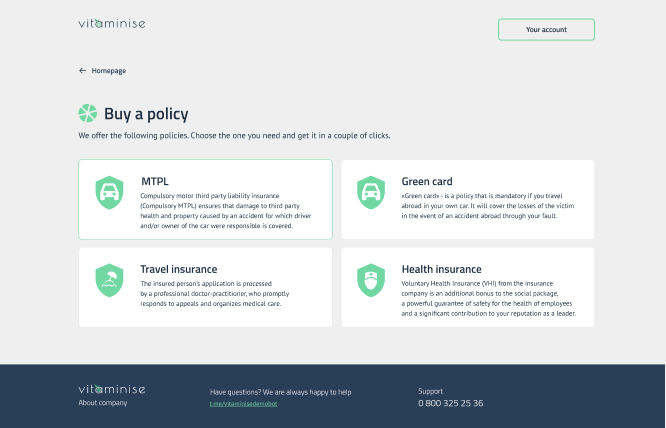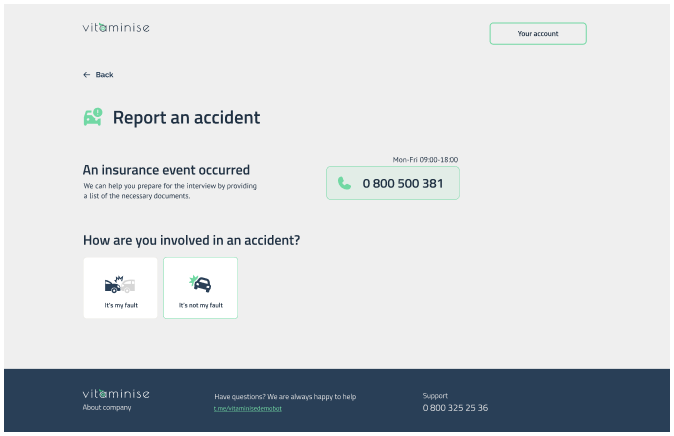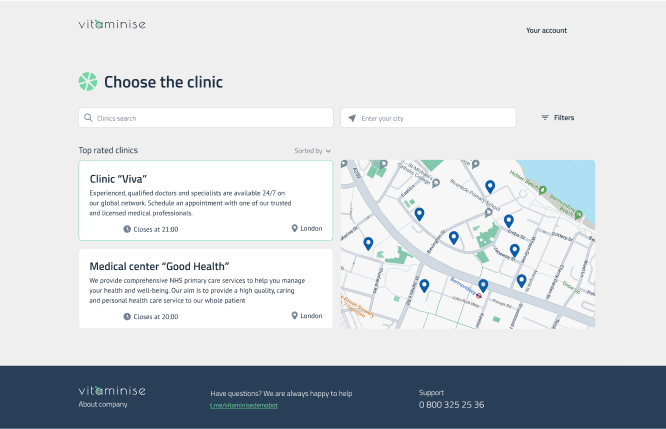In our high-tech-driven age, ignoring IT advancements spells lagging hopelessly behind your competitors and losing customers by the dozen. Realizing this, companies across all industries invest heavily in professional and client-facing software innovations.
The insurance field moves in the wake of this trend, with insurance organizations embracing digitalization on an ever-growing scale. They launch brokerage solutions and healthcare insurance apps, leverage the power of artificial intelligence for fraud detection and claims management, harness AI-fueled analytics products, etc.
One more digital instrument that can become a game-changer for insurance firms poised for business success is a custom insurance agency management system (AMS). Let’s find out what a custom agency management system is and why it is important for organizations in the domain to have robust AMS insurance software in place.
What is an agency management system?
An AMS is a comprehensive multi-functional enterprise solution that acts as an organization’s major information hub. It is a virtual venue for collecting, storing, and organizing customer-related data. Dossiers kept in an AMS typically contain contact and contract information, enabling personnel to track current clientele and augment customer service.
AMS software dates back to the early 1980s when it was an on-premises product requiring regular upgrades. Since then, it has undergone revolutionary changes and turned into a cloud-based software-as-a-service solution. Such transformation ushered in security, scalability, flexibility, and minimal hardware acquisition and upkeep costs.
Need a custom solution for your agency? We offer custom insurance agency management systems.
Benefits of agency management system software
- Maintaining organized and accurate records. Staff working with clients can always refer to the AMS to contact customers or learn the details of their contracts. Such a clear view of the clientele is crucial when an organization grows, which entails the exponential increase of customers and data concerning them.
- Manual task automation. No matter what business field you work in, numerous routine tasks always take up a great part of the personnel’s time. For instance, in the insurance sector, they have to manage renewals, handle invoices, process payments, track commissions, generate quotes, etc. AMS insurance software can tackle these errands by automating such back-office workflows.
- Client touch automation. The system can generate reminders for the workforce to contact customers on special occasions related to business issues (such as contract renewals or claim follow-ups) or life events (birthdays, anniversaries, and the like). Moreover, such communication can be automated as well.
- Reducing operator errors. Human factors often cause mistakes and failures when dealing with huge amounts of data. When this task is entrusted to technology, the quality of data processing soars while the number of issues plummets.
- Providing operational insights. AMS’s live reporting ability to monitor tasks and performance metrics lets companies obtain a real-time view of their functioning as a whole and the efficiency of every employee. Analyzing such indices empowers executives to better manage their shop floor processes and make data-driven personnel decisions, including rewarding the best staff members and reprimanding those who underperform.
- Expanding collaboration opportunities. AMS software can improve employee interaction by setting up various communication channels. Its live chat or direct messaging features streamline joint efforts and allow several workers to team up on a single client.
- Enabling remote work. The vicious attack of the global pandemic called for switching to a remote mode of work across many industries. The plague has subsided, but people still need an opportunity to perform their duties even when absent from the workplace. Thanks to AMS, employees can access the information it contains via a mobile device, no matter where they are.
- Sustaining social media presence. Social media is an indispensable part of the modern business landscape, and it is a felony to ignore its tremendous customer engagement power. AMS facilitates client retention and lead generation efforts and allows organizations to keep a firm foothold in the realm of social networks.
- Contract option generation. AMS’s capability of contract generation allows potential consumers to review service options and learn the price tag for the required item.
A customer relationship management system can also perform many of these functions. What are the differences between AMS and CRM?
AMS vs CRM: Comparing two systems
As a vendor specializing in custom CRM development, DICEUS can reveal four characteristics that distinguish AMS from CRM.
- AMS has a greater scope. As a rule, CRM is geared toward some major business aspects. AMS has no limitations as to the sphere of application. It can handle the automation of any pipeline procedures – from implementing policy updates to sending birthday emails.
- AMS is an all-in-one solution. CRM can rely on several platforms or software applications to do its job well. AMS functions as a single product that covers all data and workflow management aspects in one service.
- AMS is a niche product. It is fundamentally an insurtech solution. Due to the fine points of its design and development, AMS insurance software is honed to operate in this domain. CRM has a broader application range and can be onboarded by organizations from all business areas.
- AMS can be tailored to various industry fields, while CRM is industry-neutral. Despite being originally an insurance agency management system, AMS software has significant customization potential. During its set-up stage, developers can configure the system to cater to the individual needs of a specific company.
Given the diversity and volume of data it is called to organize, AMS suits insurers better. What should you look for while implementing AMS software for insurance?
Key features of insurance agency management system software
Having delivered multiple insurance agency management software projects, DICEUS experts know what such systems’ mission-critical functionalities are.
- Dynamic forms. Well-thought-out and structured intake forms contain mandatory questions and incorporate various question types to personalize the user experience for insurance company clients. The forms should be tailored to suit various kinds of projects and offered according to the prompts the customer selects during the intake procedure.
- Customizable workflows. Every insurance agency is unique in the workflows it relies on. That is why a top-notch AMS should allow you to fine-tune workflows and let them dovetail into your organization’s pipeline.
- Collaborative editing. In insurance, several team members can work on the same document. If they do it independently, they may work with outdated copies of it, overlook editing requests, or try to modify the final version of the document, spoiling the result achieved by others. The collaborative editing feature allows personnel to introduce changes in the document in real-time and make the document available to all stakeholders, thus avoiding conflicting edits.
- Real-time reporting. This is another concurrency capability that extends beyond document editing and covers all shop floor processes within the organization. Knowing what projects are underway now, how many projects are completed each month, or how long every project takes, you can introduce the necessary changes into the pipeline to increase productivity and improve the efficiency of your workforce.
- Integrated accounting. A comprehensive agency picture is impossible without adequate accounting. By integrating this feature into your AMS, you will be able to centralize all income and expenditure data (such as payments, billing, product information, and more) and radically cut down on reporting time.
- Seamless communication. For a large team whose members often work remotely, efficient communication is mission-critical. AMS has become a universal interaction platform allowing personnel to stay in touch with colleagues and clients and receive timely updates on all developments in claim status and progress.
- Email integration. Your employees must be able to send or receive emails without leaving the system, which accelerates pipeline processes and takes the organization’s efficiency to a new level.
- Mobile access. It enables personnel to stay tuned and continue working out of the office or on the road. They can retrieve information they need and collaborate with colleagues, thus contributing to the common project.
To build the best-in-class AMS containing all these and any other features you need for the efficient functioning of your insurance agency, you should hire a competent IT vendor. The qualified and certified specialists of DICEUS have long-time experience and the necessary technical expertise to deliver a custom insurance agency management software product of any scope and complexity within time and budget. Drop us a line to obtain a high-end insurance AMS that will boost the efficiency and productivity of your firm.
Summing it up
As part of the comprehensive IT ecosystem, an agency management system is an all-in-one data hub where insurance companies store information about their clientele. When implemented as a cloud-powered SaaS solution, AMS is a second-to-none instrument for maintaining accurate dossiers, automating manual tasks, mitigating operator errors, increasing collaboration opportunities, providing business insights, and more.
To make the most of insurance AMS, you should fill it with relevant features (dynamic forms, customizable workflows, collaborative editing, real-time reporting, integrated accounting and email capabilities, mobile access, and the like) and hire a high-profile IT vendor to create a bespoke solution that will address your insurance agency’s unique needs.
FAQ
What is custom AMS insurance software?
This is a bespoke cloud-based enterprise solution that serves as a single digital venue for collecting, storing, and organizing information an insurance agency operates in its shop floor processes. As a rule, such dossiers contain contact data of the clients and details of their policies, but the organization may commission additional capabilities and integrations for their AMS.
How does custom AMS insurance software differ from standard AMS solutions?
Boxed solutions of this type contain only garden-variety features that suit an average insurance agency. By commissioning a made-to-order AMS, you can tailor the capability roster according to your company’s needs, fill it with unique functionalities, and integrate it with the platforms and third-party systems you want. As a result, you pay only for the features you will use in your pipeline operations.
What functionalities does custom AMS insurance software typically include?
The choice of features is conditioned by the specifics of the agency that orders the implementation of AMS. Insurance organizations can’t do without dynamic forms, customizable workflows, real-time reporting, collaborative editing, integrated accounting, email, and social media tools, and reliable communication instruments. Other features can be added at the customer’s discretion.
How does custom AMS insurance software benefit insurance agencies?
With a smoothly functioning AMS in place, insurance companies can maintain organized business records, automate the lion’s share of manual tasks, reduce human-driven errors, generate policy options, increase collaboration opportunities, facilitate remote work, obtain operational insights, sustain constant social media presence, and more.
Сообщение Custom AMS insurance software: Benefits and features появились сначала на DICEUS.




